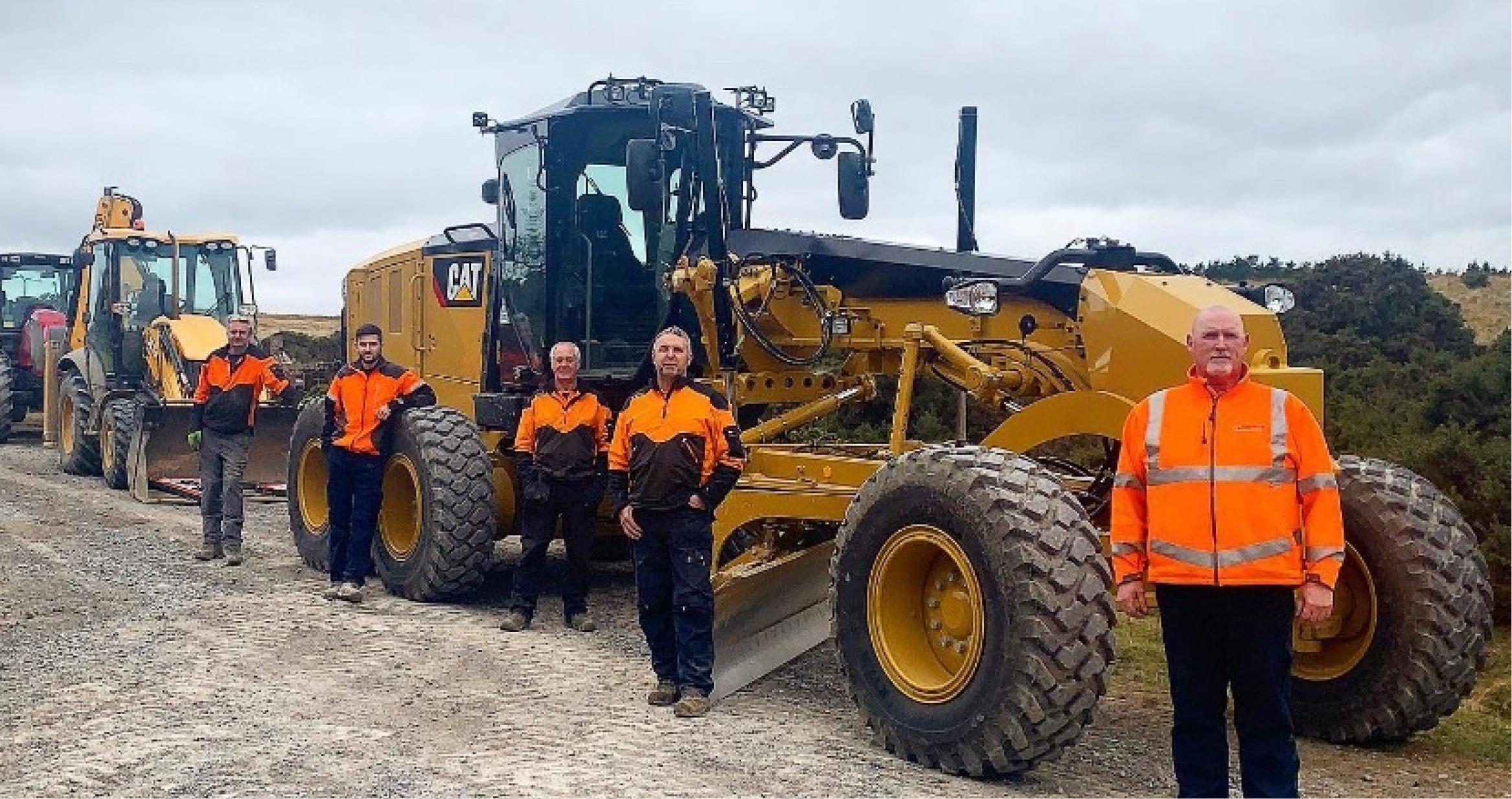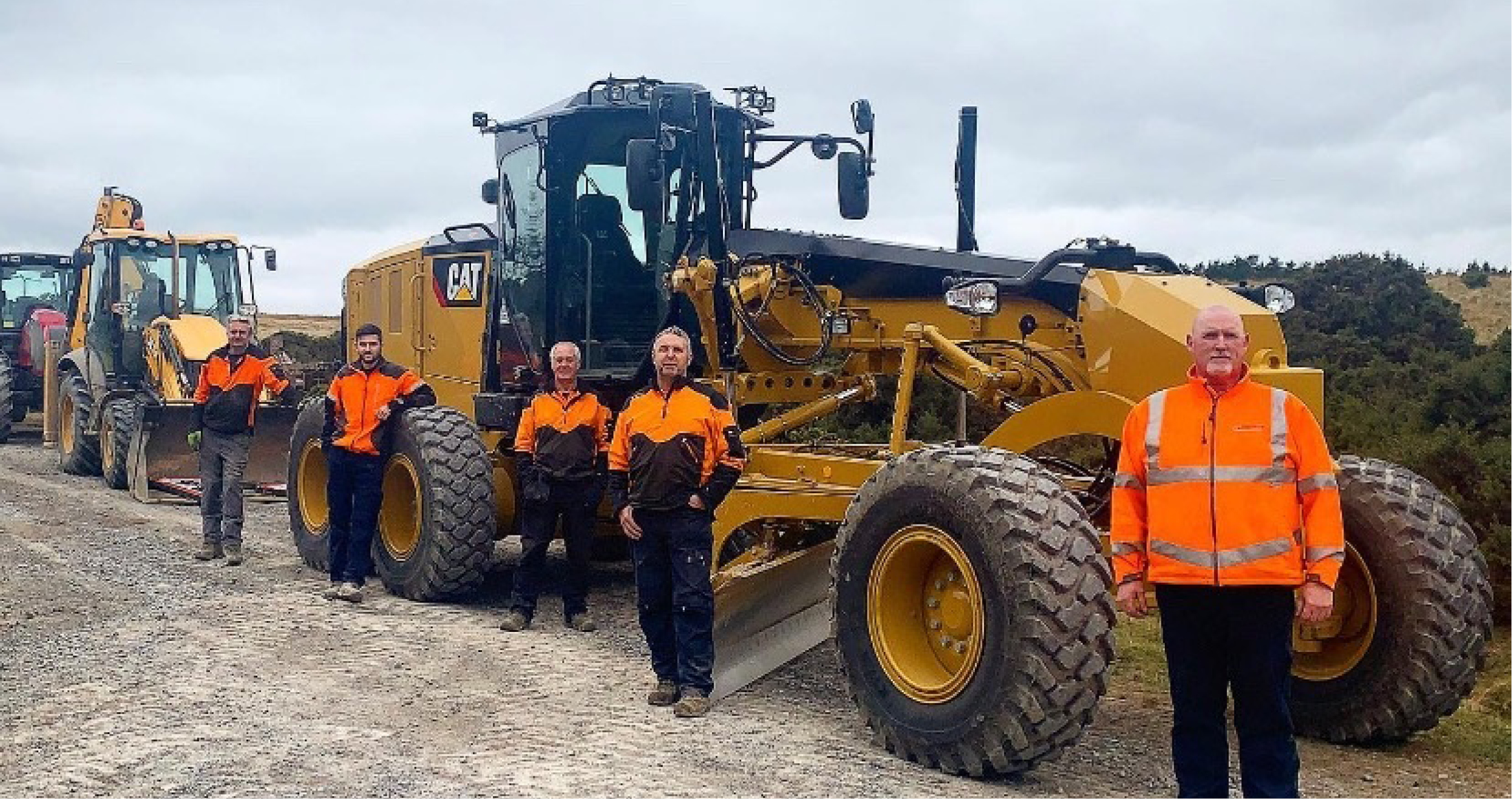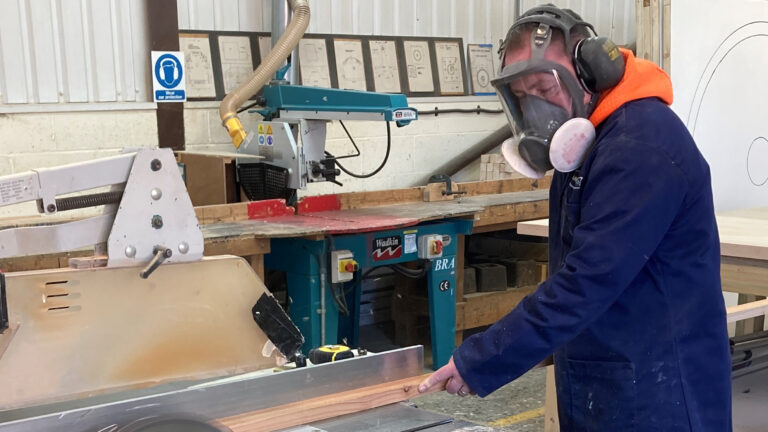The primary purpose of the Defence Training Estate is to ensure the Armed Forces have a quality training experience that resembles as many real-life worldwide environments as possible. For this reason, effective rural estate management across a wide variety of landscapes and terrains is not only essential for the preservation of UK ecosystems, but also for effective military training – placing a huge impact on where species can thrive.
Our teams are dedicated to rural land management across the Estate, ensuring the landscape is there for people to live, work, train and enjoy for years to come. Rural team members have a multitude of skills, which allow them to carry out their unique role effectively and efficiently.
Richard Kimmage, Rural Team Leader in the North, explains how being multi-skilled is essential for the job that he and his team do on a day-to-day basis, and allows them to wear many different hats to ensure that we provide a safe, protected, and sustainable Estate where species can thrive alongside Estate Users.

Pictured above from L to R, Rural Supervisor Steve Green, Training Area Operatives Matthew Ramsden, Dave Lapham, Dennis Moore and Team Leader Richard Kimmage.
“I have worked at Landmarc for almost five years and have definitely found my calling as Rural Team Leader. Having not worked in a rural role before, apart from some limited dry stone walling experience, Landmarc kind of took a gamble with me, and I’m pleased to say it worked out for us both. That’s the great thing about Landmarc, they are willing to give a person with the right attitude a chance.
“Prior to Landmarc I worked in the Private Security Sector for companies such as Chubb, G4S and Mitie, after leaving the Army in 2001. I proudly served in the Coldstream Guards and for most of my time I was Bass Drummer in the Corps Of Drums, but I was also a General Purpose Machine Gun (GPMG) Gunner in the Sustained Fire (SF) platoon. I’ve done all the Queen’s Guards and also taken part in the Trooping of the Colour, Beating Retreat, State Visits, State Opening of Parliament and the Edinburgh Tattoo.
A unique role which commands a multi-skilled team
“The rural role on the Defence Training Estate (DTE) is very unique with no other job like it. No two days are the same. We do everything from track maintenance to dry stone walling, fencing, foresty works, water gates, culverts and ditching. We need to be highly skilled and highly trained. I myself have lots of tickets and qualifications – if I didn’t have these qualifications then the rural role would not only be harder, but I’d go as far as to say impossible.
A typical day as rural Team Leader
“We try to be as organised as possible in rural, and try to plan jobs at least a week in advance, but it happens a lot where jobs come in at short notice that need to be dealt with straight away.
“Forward planning is an essential part of the role, as we manage a wide variety of landscapes and terrains, so what works on one job might not work on another. You have to be adaptable, flexible and everything in between.
“If we are doing a fencing repair job, I will have already completed a recce to see what access is like – can we get the trucks and machinery we need close enough to the site? The time of year needs to be considered, as this will affect the condition of the ground and therefore what type of post knocker we are able to use. The topography of the area is also assessed, how steep is it, are there trees or walls in the way? All of this prior preparation helps to ensure that the job runs as smoothly as possible.
“If we can’t get a machine or truck to the fence line then we park the trucks as close as possible and carry everything to the job, including fence posts, wire and all the tools we require; sometimes this can be a fair distance.
“Once on the job we will remove the old fence and install the new one. If we haven’t been able to get the machines in then it means the posts have to be manually knocked into the ground, which is very labour intensive, and strainer posts have to be dug in. This is my least favourite part of the job, especially if we’ve had to carry them quite far and then dig them in, in all weathers. Most fences are around woodlands, so the ground is very rooty and stoney, which makes it hard to dig down at least four feet.
“Depending on the geography and length of fence depends on how long the job takes, but we do aim to get it done in a day – this isn’t always the case though. Also sometimes we are required to help open up and hand over ranges first thing, which obviously takes working time out of our day.
Highs and lows of the job
“The job isn’t for everyone as rural work is very hard. At times you find yourself working in some unforgiving landscapes in horrendous weather, but then there’s the other side, when you can be working on a hill on a warm summer’s day with the best views. Also the work we do is enjoyable and more importantly very satisfying. It’s no secret that I love working in the big grader on track works, and I’m also now a good and very experienced dry stone waller. Walling is such a satisfying job to do!
“Three of my rural team members have been awarded Exemplary Service Awards (including me), which we are very proud of. We work perfectly as a team, and on most jobs we can almost tell what each other is thinking and everyone knows what they have to do. We are the epitome of what team work is meant to be.
“In February we were tasked with working alongside the BBC Top Gear production team while they filmed an episode on the Training Area, which is yet to be aired. I wasn’t joking when I said no two days are the same!
“We have just experienced our most challenging time, which was dealing with all the devastation left by the back to back storms we had through winter. On top of that we had our usual tasking to do, with not a lot of people to do them, but hopefully that is behind us now.
“Rural work is hard work but the benefits, both mental and physical, are worth the effort. It gives you a broad skill set of working in the land management and maintenance sector. Having to problem solve is a weekly if not daily occurrence, and when you achieve your goals it fills you with pride. The landscape and scenery is breathtaking. Not to mention all the superb wildlife we see all around us. I would recommend rural to anyone with the right mindset.”




